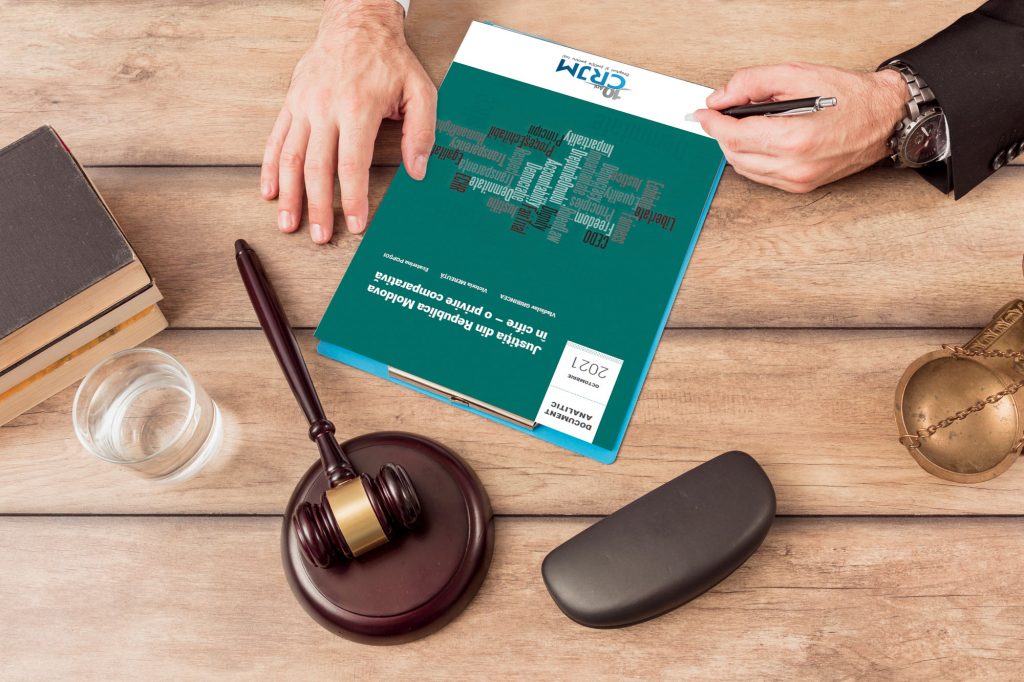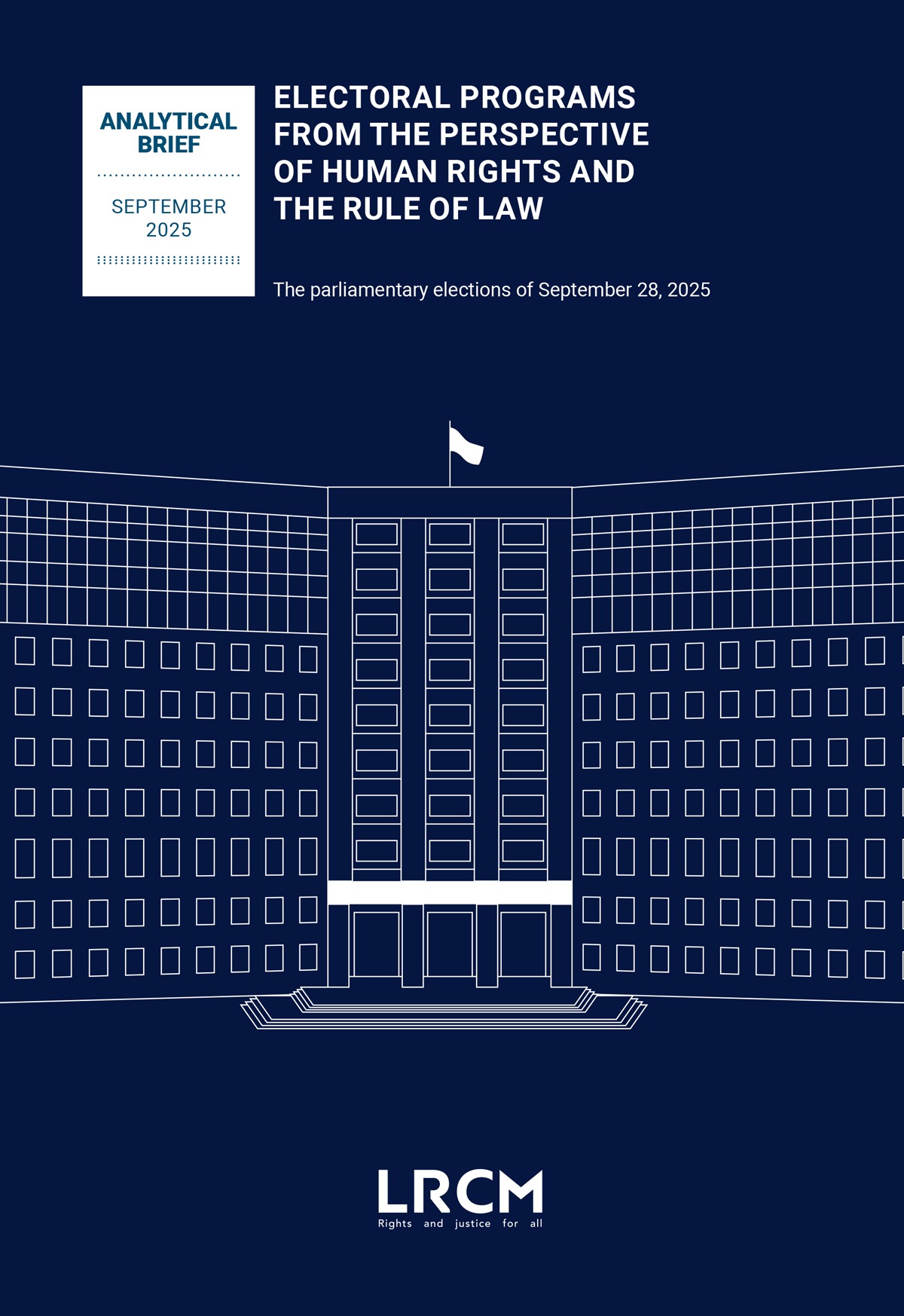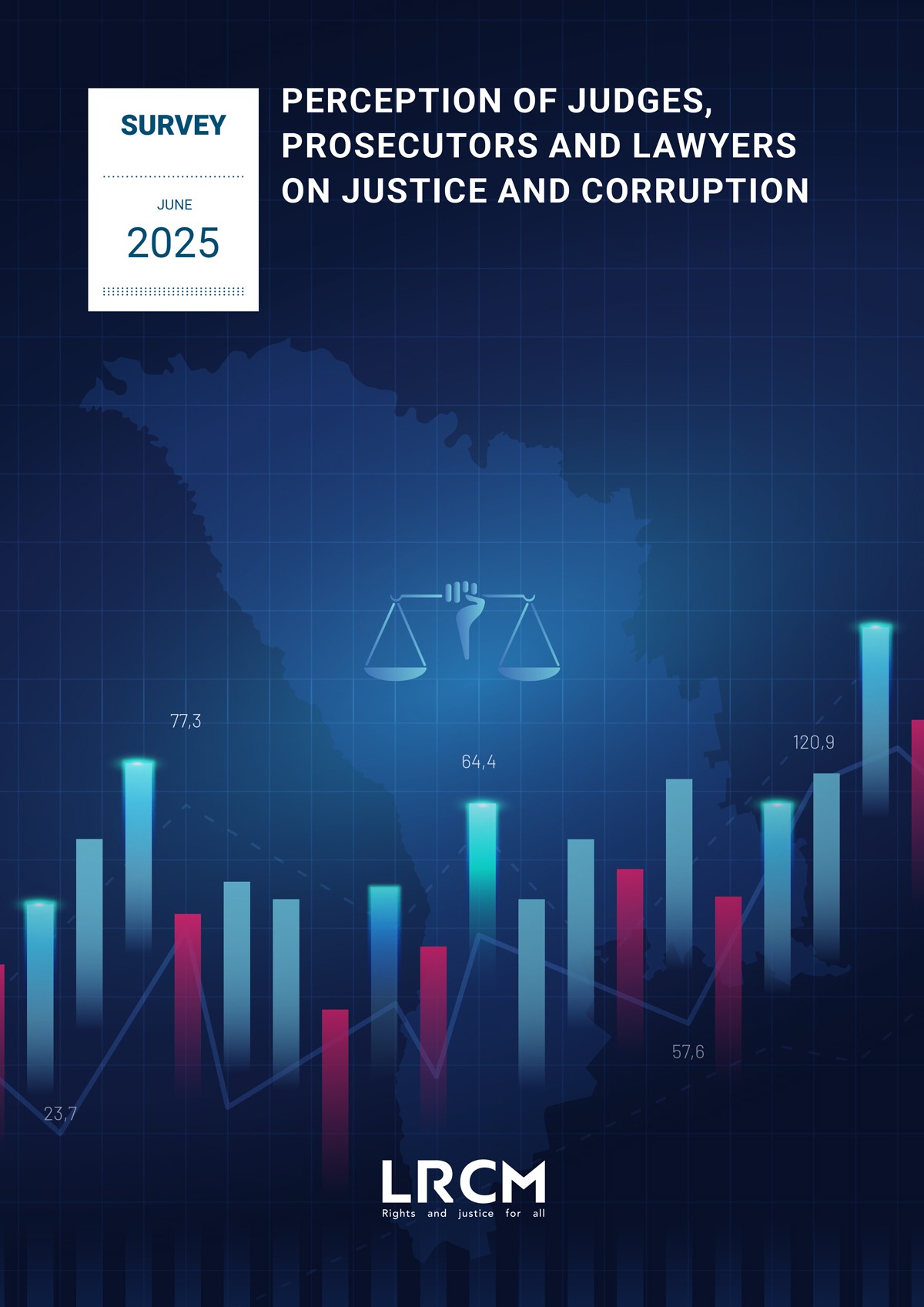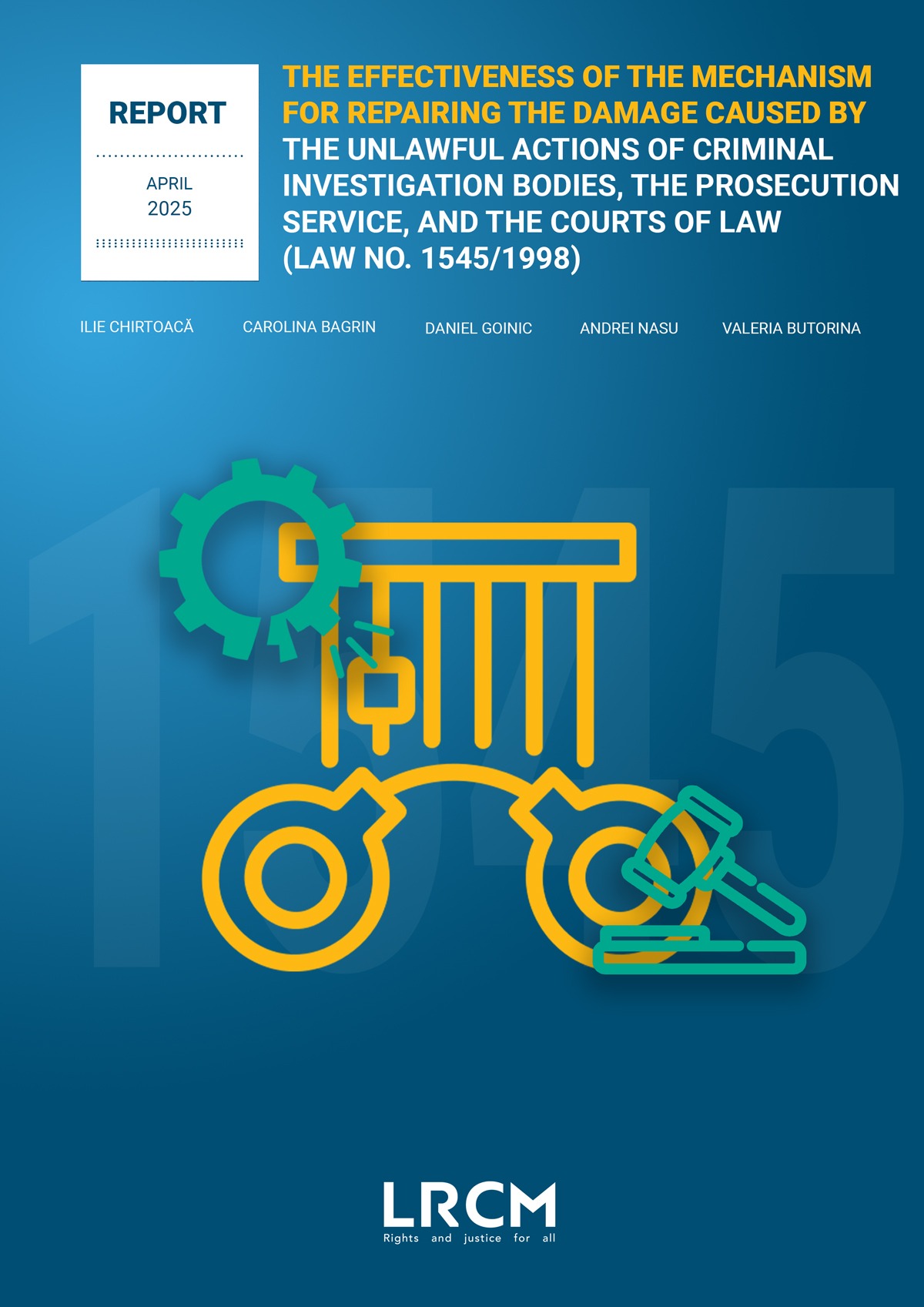The justice sector in the Republic of Moldova is partially in line with the European standards, managing to meet the Council of Europe average only in terms of share of the funds allocated in the state budget and the number of court personnel employed per capita. These are just a few of the findings of the Legal Resources Centre from Moldova (LRCM), which on Thursday, 7 October 2021, presented a statistical analysis to benchmark the justice sector of the Republic of Moldova against the justice sectors of the Council of Europe member states.
One of the main issues concerns the length of court proceedings. The Republic of Moldova has one of the fastest court proceedings, which, according to the authors, affects the quality of justice.
“Justice in the Republic of Moldova is done much faster than the European average. Unfortunately, the speed with which a court case is examined has a negative impact on the quality of justice, as demonstrated by the lack of confidence in the justice system and the numerous condemnations at the ECtHR”, said Vladislav Gribincea, one of the study’s authors.
In general, the public funds allocated for justice in Moldova are quite appropriate, even slightly above the European average. The number of judicial personnel is also in line with the European average. However, it is important to note that, of all the countries examined, the Republic of Moldova pays the lowest salaries to its judges, prosecutors and to the personnel that assists them.
The authors’ conclusion is that the allocated human and financial resources can be considered sufficient, as they are being in line with the average of the European countries. However, the main challenge in the justice sector remains the efficient management of these resources.
The Minister of Justice, Sergiu Litvinenco, was also present at the launch event. He praised the informative value of the study, noting that such analyses are taken as a benchmark in the elaboration and implementation of justice reforms.
The analysis “Moldovan Justice in Figures – a Comparative Perspective” was drawn up on the basis of the European Commission for the Efficiency of Justice of the Council of Europe (CEPEJ) 2020 Report and the official data on the Republic of Moldova from 2018 and 2020.









